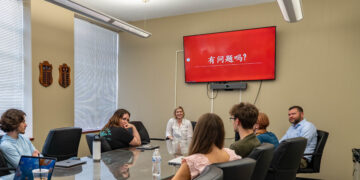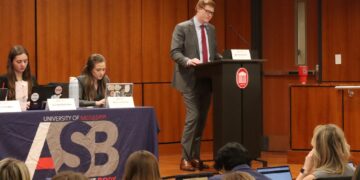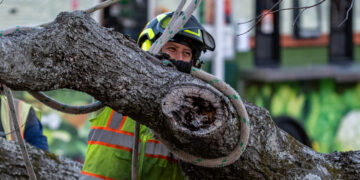Our school’s brand has not been tarnished by racism, because racism has always been our school brand. Imagine if the institution that once lost all but four of its students, who were fighting for the University Greys in the Civil War, took action to undo the damage caused by our racist history. The Flagship would undoubtedly set a higher standard for race relations in the state of Mississippi. We have the opportunity to tell the world who we are and what we stand for by addressing these indisputable truths. Our history of poor race relations should be addressed by mandating that each student, faculty and staff take a course in racial sensitivity.
Because university students posed for a picture in front of the bullet-ridden Emmett Till historical marker, it’s about time we had a much-needed conversation.
Susan Glisson, who once served as executive director of the William Winter Institute for Racial Reconciliation, now serves on the Tallahatchie County Emmett Till Memorial Commission. The commission helps contextualize the story of Till by fostering conversation among brown, black and white communities in Tallahatchie County, furthering the racial reconciliation efforts. Our university should take a similar approach, because we are still making elementary mistakes in moving forward.
Many African American leaders and students — including myself — have sacrificed their time, energy and emotions to engineer a more inclusive environment for their peers. The university should implement racial sensitivity training to take all the responsibility off of our shoulders. We need actionable steps and racial sensitivity training to rip off the bandage and begin the healing that we all deserve and need.
At the very least, the university administration would be able to say that they have taken some steps to inform the entire campus of our dynamic history and its relationship with race, just as we do with alcohol and sex safety. The bigger picture is that the entire university needs to be in on this conversation. It requires everyone being comfortable being in an uncomfortable place until we find compromise and understanding. Addressing our racial tension is as important to our campus culture as alcohol safety or stress management.
At this point in our history, we cannot afford to regress. Racial resentment will continue to permeate our institutions until we find a common accord with where we wish to go as a united body of the people. What does it say about a school where students who are constantly battling explicit racism ask for structural support, and the institution looks us squarely in the face and tells us no?



































